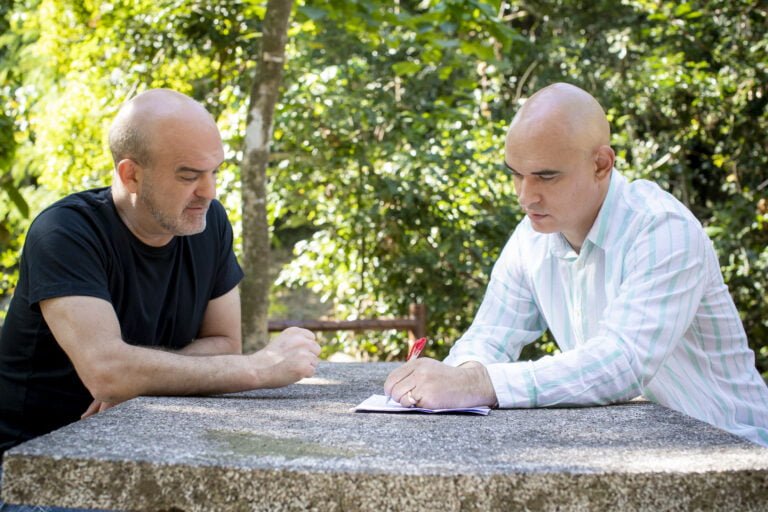Table of Contents
ToggleAcceptance and Commitment Therapy (ACT)
Acceptance and commitment therapy (ACT) is a type of psychotherapy that stems from traditional behavior therapy. It emphasizes acceptance as a way to deal with negative thoughts, feelings, and circumstances.
The theory suggests that increasing acceptance can lead to increased psychological flexibility. In other words, an ACT therapist will teach clients to refrain from avoiding certain thoughts or emotions, and, instead, accept that these deeper feelings are appropriate responses to certain situations. With this understanding, they will be able to move forward in a proactive manner, with the skills to make necessary changes in their behavior.
ACT has proven beneficial in treating a host of conditions, including:
- Anxiety
- Depression
- Eating disorders
- Obsessive-compulsive disorders
- Substance abuse
- Stress regulation

How Does ACT Work?
It aims to develop and expand psychological flexibility. This means learning emotional openness and the ability to adapt your thoughts and behaviors to align with your values and goals. This process involves six core components:
1. Acceptance :
Acceptance is centered around acknowledging and embracing your inner thoughts and feelings without trying to change, ignore, avoid, deny, or alter them. Instead of trying to suppress or control emotions and thoughts, ACT encourages individuals to accept them. Acceptance allows individuals to focus on actions aligned with their values rather than being dominated by difficult thoughts and feelings.
2. Cognitive Defusion :
Cognitive defusion involves separating yourself from your inner experiences and changing the way you react to distressing thoughts and feelings, thereby mitigating their harmful effects. This technique includes identifying the automatic response that you have to uncomfortable and negative emotions. The result of defusion is usually a decrease in the believability of negative self-talk.
3. Being Present :
Being present involves being mindful in the present moment. It focuses on what is happening with you in your environment right now, as opposed to what has happened in the past or what may happen in the future. Being fully present and engaged in the current experience is considered essential for psychological flexibility.
4. Self-as-Context :
This is the practice of learning to see your thoughts about yourself as separate from your actions. It can be thought of as a means of stepping back and watching what is happening within you. Self as context expands the notion that people are more than their thoughts, feelings, and experiences. It helps individuals recognize that they are not defined solely by their thoughts and feelings.
5. Values :
Identifying and clarifying core values is crucial in this therapy. This component is centered around choosing personal values and striving to live according to those principles. Values can help you to stay on the path toward what is meaningful to you. Understanding what is truly important guides individuals towards actions and decisions aligned with those values.
6. Committed Action :
Committed action is the process of taking concrete steps to incorporate changes that will align with your values. It means changing your behavior and applying the principles covered in therapy.
7. The Hexaflex Model: Acceptance and Commitment Therapy is often represented by the hexaflex model, consisting of six core processes: Cognitive Defusion, Acceptance, Present Moment Awareness, Self-as-Context, Values Clarification, and Committed Action. These processes work together to enhance psychological flexibility.
The Acceptance and Commitment Therapy has proven effective in various contexts, addressing issues such as anxiety, depression, stress, and chronic pain. It is utilized in both individual and group settings, aiming to help individuals lead more meaningful and purposeful lives despite challenges.
Finding an ACT Therapist :
Acceptance and Commitment Therapy may be offered by social workers, psychologists, psychiatrists, or other kinds of mental health professionals. It is important to look for a licensed, experienced therapist with qualifications pertaining to ACT.
Recovery852’s Grant Sanders has over fifteen years of experience and over 3,000 hours of clinical experience working in addiction recovery. He is a licensed, accredited internationally certified addiction professional with a degree in social science. He has training in evidence-based counselling therapies like Motivational Interviewing for Addiction and Acceptance Commitment Therapy. If you are considering this therapy, contact us today.
- Different Types of Addiction
- Support Network In Recovery From Addiction
- Effective Treatment for Addictive Behaviours
- Cognitive Behavioural Therapy For Addiction
- Setting Realistic And Reachable Wellness Goals In Recovery
- How Addiction Affects Families
- Sober Curious: A Movement For Change
- The Five Rules Of Recovery
- What Is Acceptance and Commitment Therapy?
- Mental Health 102: Understanding Depression
- Unpacking Wine Mom Culture
- The Dangers of Addiction Replacement
- Nurtured By Nature: Nature In Addiction Recovery
- The 12 Steps For Atheists
- A Deeper Look Into Dual Diagnosis
- Financial Wellness in Addiction Recovery
- How Does Stress Affect Addiction?
- Mental Health 101: Understanding Anxiety Disorders
- Talking About Marijuana Use Disorder
- Yoga Practices in Addiction Recovery